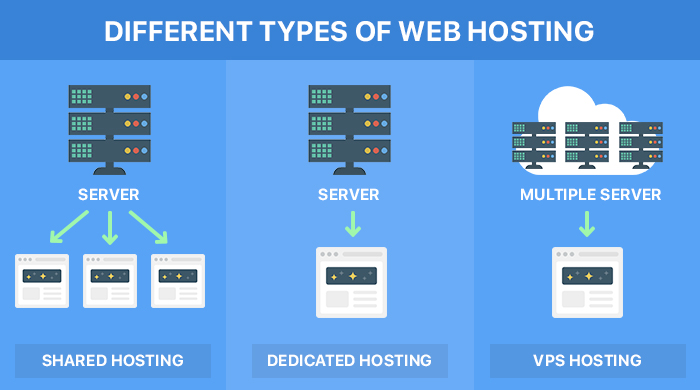
Understanding Your Options: A Guide to Web Hosting and Servers
Created on 25 February, 2024 • Hosting • 267 views • 2 minutes read
Understanding Your Options: A Guide to Web Hosting and Servers
In the digital age, having a strong online presence is crucial for individuals and businesses alike. This often necessitates creating a website, which requires choosing the right platform to host it. But navigating the world of web hosting and servers can be daunting for those unfamiliar with the technical aspects. This article aims to demystify the key concepts and empower you to make informed decisions regarding your website's hosting needs.
1. Demystifying Web Hosting:
Web hosting refers to the service of storing your website's files and making them accessible to users over the internet. Imagine it like renting an apartment for your website – the hosting provider provides the space and infrastructure to keep your website online and readily available to visitors.
2. Types of Web Hosting:
Here's a breakdown of the most common web hosting options:
- Shared Hosting: This is the most affordable and beginner-friendly option. Your website shares server resources (like memory and processing power) with other websites, making it suitable for small websites with low traffic.
- Virtual Private Server (VPS): This option provides a dedicated portion of a physical server, offering more control and resources compared to shared hosting. It's ideal for websites experiencing moderate traffic or requiring more control over the environment.
- Dedicated Hosting: You rent an entire physical server for your exclusive use. This option offers the highest level of control, performance, and security, but comes at a higher cost. It's best suited for high-traffic websites and applications requiring specialized configurations.
3. Choosing the Right Hosting Plan:
Factors to consider when choosing a hosting plan include:
- Website traffic: Anticipated visitor volume plays a crucial role in determining the resources your website needs.
- Storage requirements: The amount of data your website stores, including text, images, and videos, will dictate the storage space required.
- Features and functionalities: Choose a plan offering essential features like email hosting, database support, and security measures relevant to your website's needs.
- Scalability: Consider future growth and choose a plan that allows for scaling up resources as your website expands or evolves.
4. Understanding Servers:
A server is a physical computer that stores and delivers website files and data upon request. It acts as the backbone of your website, keeping it operational and accessible to visitors. While web hosting typically includes server management, understanding the basics can be helpful.
5. Server-Related Concepts:
- Operating System (OS): Servers run on operating systems like Linux or Windows Server, which manage the server's resources and applications.
- Software: The server software, like Apache or Nginx, processes website requests and delivers the appropriate content to users.
- Hardware: The server hardware includes components like CPU, RAM, and storage, which determine the server's performance and capacity.
6. Conclusion:
Knowledge about web hosting and servers empowers you to make informed decisions concerning your website's online presence. Understanding the available options and their functionalities allows you to choose a plan that aligns with your website's specific needs and future aspirations. Remember, the "best" option isn't always the most expensive. Consider your budget, website requirements, and growth potential when exploring hosting solutions and select the plan that offers the optimal balance of features, performance, and affordability.